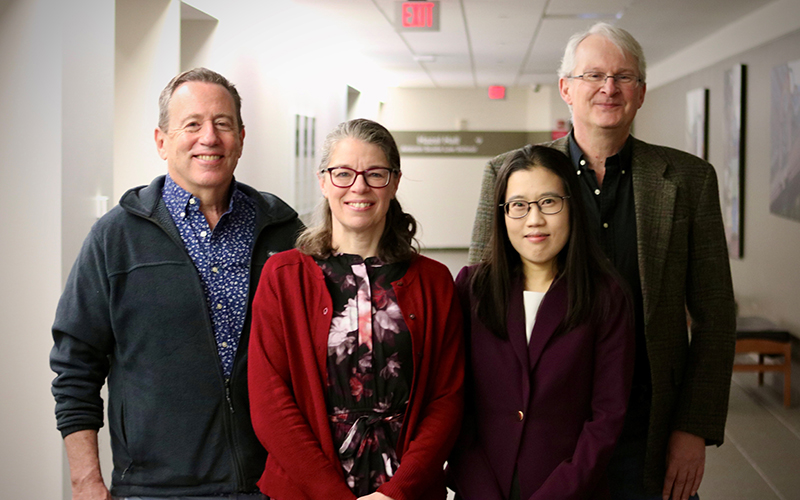
“What if our nonprofit organizations and our research brought about emancipation, transformation, equity, and justice? What if our nonprofit organization workplaces brought out the best in us? What if our research supported these goals?”
Those were the questions asked earlier this month by Angela M. Eikenberry, a professor at the School of Public Administration at the University of Nebraska Omaha and a past president of the Association for Research on Nonprofit Organizations and Voluntary Action (ARNOVA), which advances the field of nonprofit and philanthropic research by providing a forum for scholars, educators, and practitioners.
Eikenberry was the guest of George Mason University’s Schar School of Policy and Government and its Center on Nonprofits, Philanthropy, and Social Enterprise. Her April 10 talk at Mason’s Mason Square campus invited listeners to “reimagine” the way the nonprofit sector and philanthropy could operate.
The following are highlights from the presentation, Reveal, Repair, and (Re)Imagine: Reframing Philanthropy Theory and Practice:
- Eikenberry pointed out the need for nonprofit and foundation leaders and scholars to examine current philanthropic systems and view them through a critical lens. Pulling on nonprofit scholarship, such as research by Bowling Green State University scholar Abhishek Bhati, Eikenberry explored the ways philanthropy has perpetuated histories of colonialism, paternalism, and other systems of oppression—pointing to the need for continued research into the intended or unintended consequences of current philanthropic structures.
- Eikenberry explored ways philanthropy and nonprofit scholars can work to change systems and repair damages caused by current systems of power. She pointed to organizations doing this work, including the U.K.’s grant-making Edge Fund that seeks to end imbalances of wealth and power by rethinking grant-making systems.
- Eikenberry ended by encouraging participants to ask big, bold “what if” questions that go beyond current philanthropic practices and to re-imagine the role nonprofit researchers can play to develop the kinds of systems and structures needed to get there.
For more information about the Schar School’s highly ranked nonprofit studies, see this site.
